Identity Week in Canada was a great success. Over the course of three days, leading identity and digital economy experts came together to discuss how to move digital identity forward in Canada. IdentityNORTH’s Annual Summit was held at Toronto’s Mattamy Athletic Centre on June 19 and 20. The following day, DIACC hosted our Annual General Meeting (AGM).
At the AGM, the DIACC members voted on the Board of Directors. John Sharpe, Vice President of CGI, and Allan Foster, Vice President of Global Partner Success at ForgeRock, were re-elected as Directors, and Sajith Nair, Partner of Cybersecurity and Privacy at PwC Canada was named as an Advisor to the DIACC Board of Directors. We’re thrilled to have fresh perspectives on our leadership team that will continue to drive progress.
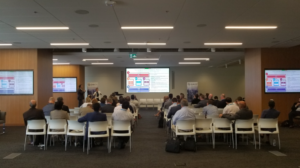
This has been a year of tremendous growth for the DIACC community. In 2016, the organization counted 29 members, but over the past 2 years this number nearly doubled, growing to 50 members. The council also has a growing international profile, with presence and recognition in New Zealand, Norway and the United States. DIACC has ramped up participation in international events, including the 2018 European Identity & Cloud Conference. We are proud of our uniquely collaborative and community-centred strategy, which is unlocking the capabilities of the public and private sectors.
The AGM featured a wide variety of demos and Q & A sessions that put a spotlight on the diverse membership of the community. Patrick Cormier from Notarius provided an overview of our new Innovation Expert Committee and called on members interested in pushing forward new initiatives and technologies to join.
Shelley Bryen of WorldReach Software shared a presentation on the implications, opportunities, and challenges of border-crossing as we move towards a virtual border. Bryen noted that, with policy changing “at the speed of tweets”, it is important to be ready for these changes. She highlighted how innovations such as facial recognition and information transfer prior to arrival can enable seamless border travel.
Patrick Drolet of Notarius provided an overview of trends in digital transformation, including a demonstration of how a visible digital seal can create a bridge between electronic and paper documents. Approaches like this make the transition to digital easier and enhancing trust.
“Fantastic sessions and informative conversations with the community” 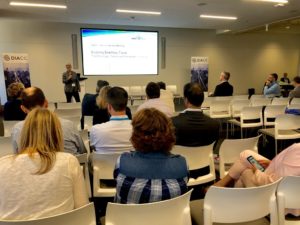
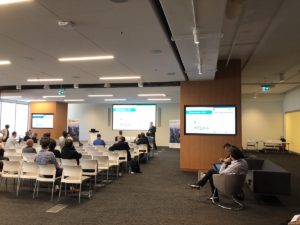
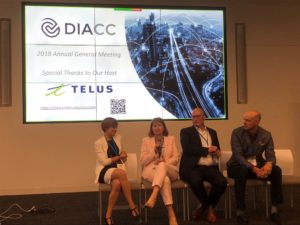
The Government of B.C.’s John Jordan demonstrated how governments are working together to help businesses reduce the cost of government registration forms and permits to make for a more efficient process. Under this system, known as “TheOrgBook”, the hope is to make it easier for businesses to work with matters like verifying government issued licences and permits instead of using paper.
Allan Foster from ForgeRock offered a demo of the new Verified.Me collaborative platform, which will launch in Canada later this year. It allows users to open a Canadian bank account with a UK digital ID, without having to visit a branch. Users install an app on their mobile device that confirms their identity, allowing businesses and governments to immediately do transactions without asking for proof of identity.
Amber D. Scott of Outlier Solutions presented a compliance overview that demonstrated the need for regulations that are simultaneously more robust and flexible to take into account emerging technologies including cryptocurrencies and digital identity solutions.
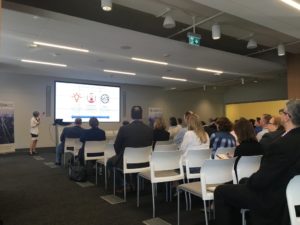
As a further testament of DIACC’s international reach, Karl Kilb, CEO of New York City-based Boloro Global Solutions, provided an informative overview of the trends in mobile authentication.
The DIACC meeting concluded with a panel, consisting of Colleen Boldon, Hugh McKee and Greg Elcich. The panelists discussed final thoughts and calls to action. On digital identity progress in Canada, Boldon said: “I think we’re at a tipping point. We can feel it, we can touch it, and we’re close to getting it done.”
Thank you to everyone who came out and who has consistently participated in the community to bring digital identity to this point. We will work together to enhance clarity around our objectives and accelerate awareness about the role of secure, reliable digital identity. As the conversation grows and this technology becomes increasingly important, our community is bigger, stronger, and more vital than ever before.